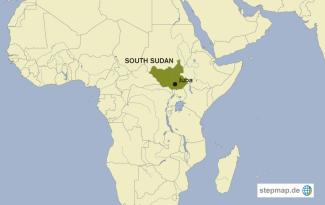Refugees
Displaced yet again

That war began in 1983, and it only ended with the signing of a comprehensive peace agreement (CPA) in 2005. Six years later, South Sudan’s people voted for independence from Sudan in a referendum. The country became the world’s youngest sovereign state in 2011.
Depressingly, a struggle for leadership between President Salva Kiir and his deputy Riek Machar turned ugly. In December 2013, fighting erupted in Juba. President Kiir accused Machar and several senior members of the SPLM of attempting a military coup. In response, Machar organised what he called “resistance”. Since then, violence has kept flaring.
In December 2013, Wani survived an attack on the compound where he lived in Juba. Soon after, he took his young family to Uganda. “I’m a serial asylum seeker,” he says, supporting his head with his hand. “Right now, I am a refugee for the third time in my life.”
Wani is one of hundreds of thousands of South Sudanese who crossed the Ugandan border this summer after renewed violence in Juba. More than 300 soldiers and civilians died in four days of street battles. A few weeks earlier, a Transitional Government of National Unity (TGONU) had been formed, but it failed, and Machar, the former vice president, fled the country.
When fighting ended in Juba, it spread to rural areas, forcing thousands of civilians to flee. According to UN figures, the number of refugees from South Sudan passed the 1 million mark in September.
Mary Poni, a mother of four, says her husband was killed by armed men: “I don’t know who they were, but they killed my husband for refusing to join them.” Poni left her village for Uganda in August. She has come to Uganda as a refugee for the second time. The first time was in 1991, when she was still a child. Back then the reason had been clashes of South Sudanese rebels with Sudan’s armed forces.
Wani’s and Poni’s fates are not unusual. Particularly in northern Uganda, many people have crossed the border repeatedly, fleeing when fighting broke out and returning to South Sudan when the situation calmed down, only to flee again when armed conflict resumed. In such circumstances, it is nearly impossible to build a stable work and family life.
Ayen Deng fled with three children across the border. “My youngest son is demanding to return to Juba,” she recounts. “But without assurance that the peace is holding, we cannot risk to go back.”
Philip Thon Aleu is a journalist and lives in Juba, South Sudan.
pthonaleu@gmail.com







